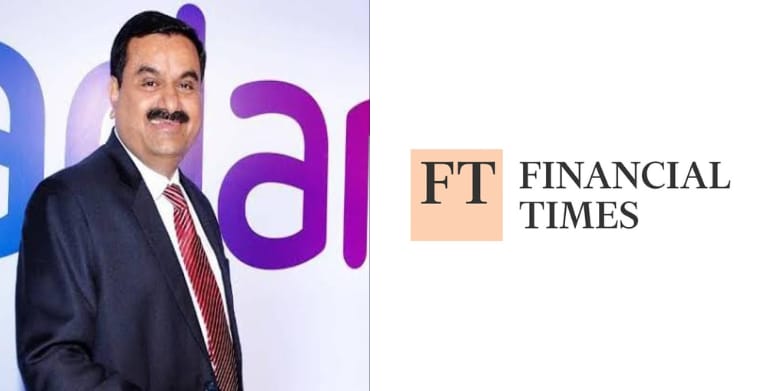On March 22, Financial Times, the London based business newspaper published that, “most of the international personal investment companies supplying Foreign Direct Investment (FDI) to the amalgamation between 2017 to 2022 has been revealed as a division of Adani’s ‘promoter group’, which conveys that they are closely related to Adani and his close relatives”.
Nearly fifty percent of total investment of Gautam Adani’s Foreign Investments was initiated from unspecified multinational companies who had direct or indirect link with the Adani entity and the total worth of those Investments from those undefined overseas was roughly 570 crores USD.”
The data highlights how funds of uncertain source have assisted Adani to improve his reclining group as he extended his trading and plastics function into an enormous infrastructure while corresponding himself with Indian Prime Minister Narendra Modi.
In the beginning of this week i.e. on 10th April 2023, the Adani Group acknowledged Financial Times by replying that, “We understand the temptation and the aggressive race to rip down Adani. But we are totally criticizing the dependability laws and we are not hiding any promoter possessions and financing.”The statement also said that the reputation of Adani’s Group has been impacted due to the misleading information published by the Financial Times and he asked them to remove the story from their website.
The Financial Times said that -“The article which was published by them was prepared accurately with the utmost care and they also said that they stand by their report”.
The information is easily available and crystal clear. They are accessible through significant securities administrative filings that were collected at that time for public record.
The Financial Times told its users that, “Adani, which forcefully rejected Hindenburg’s accusations, failed to give the remarks on why such a huge proportion of its international financing came from entities whose extreme source of funds was not obvious. At the same time, it said that all these transactions have been published in their records since 2015.”
Bala Vissa, the professor of entrepreneurship and family enterprise, said that the vagueness surrounding the Adani Group’s seaside business firm is abnormal for a company that depends on organizational capital for development because systematized investors choose to back organizations they decide on. Generally, with zero transparency a company can’t progress rapidly.”
Experts proclaim the role of the seaside companies that are associated with an existing complicative corporate framework – Adani Group has more subsidiaries and has published thousands of related transactions which made the situation even more questionable.

